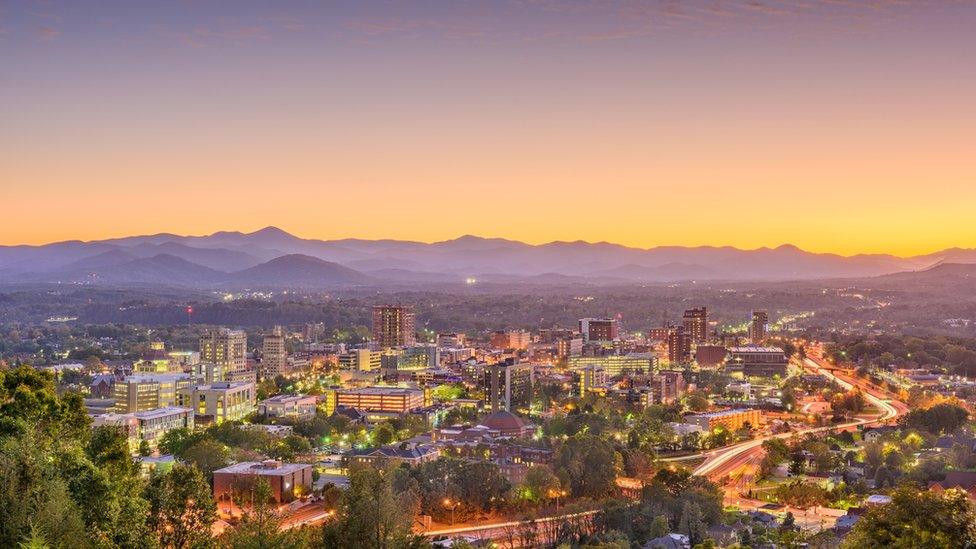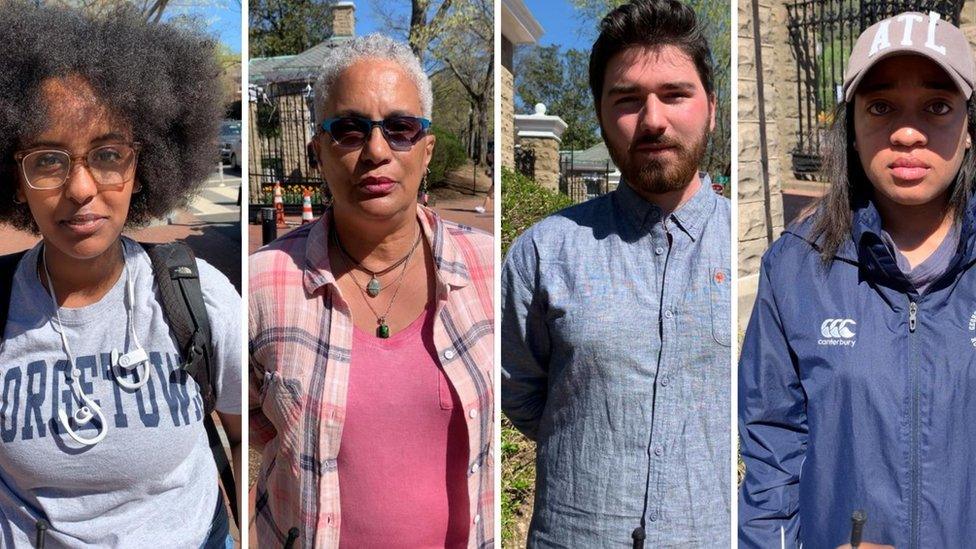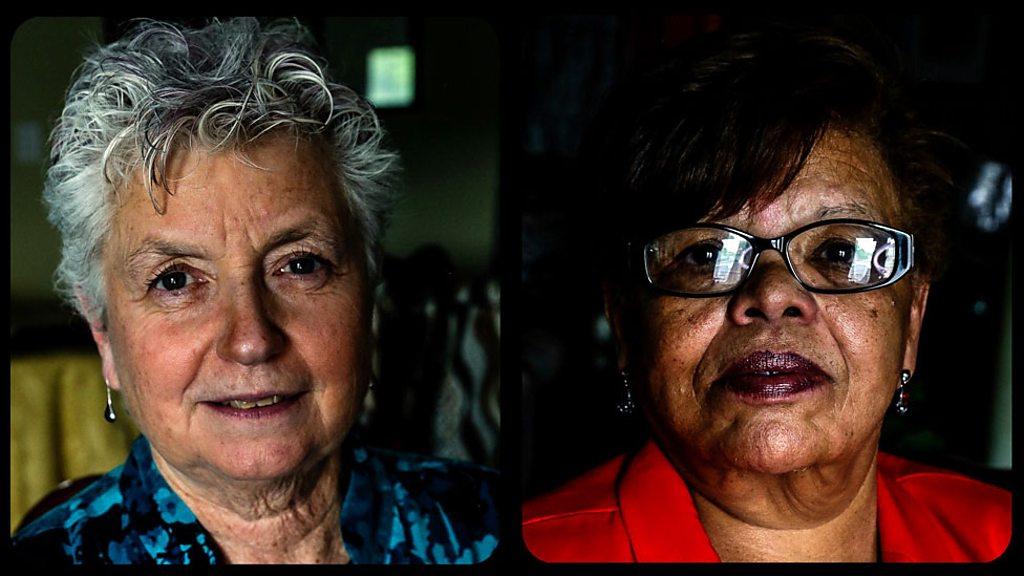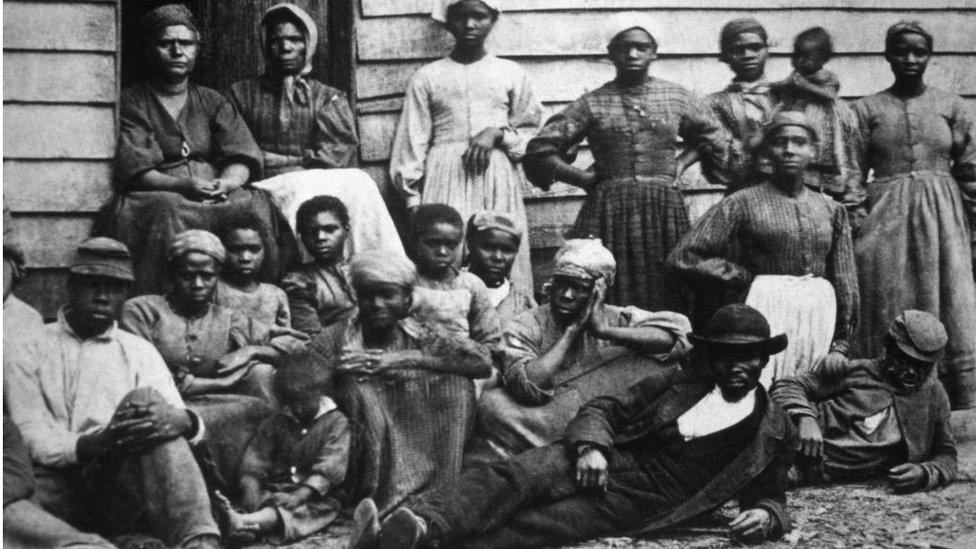North Carolina's Asheville unanimously approves reparations for slavery
- Published

Asheville sits in the heart of North Carolina's Blue Ridge Mountains
The city council of Asheville, North Carolina, has unanimously voted to give financial reparations to black people amid a surge in debate about the issue.
Reparations - financial compensation to the descendants of enslaved people - have long been hotly contested.
Asheville becomes one of the first US cities to approve reparations, joining the city of Evanston, Illinois, which approved a reparations measure in 2019.
Evanston is taxing the legal cannabis industry to help the black community.
The 7-0 vote passed on Tuesday night, just days after the county's health board declared racism a public health crisis.
In Asheville, the money will not come in the form of direct payments, but rather as investments in areas where black Americans still face discrimination and disparity in opportunity.
"Hundreds of years of black blood spilled that basically fills the cup we drink from today," said Councilman Keith Young, one of two black council members and a sponsor of the bill.
"It is simply not enough to remove statues. Black people in this country are dealing with issues that are systemic in nature," he said after the bill passed.
The resolution, external also apologises for the city government's historic role in slavery, as well as its role in the discrimination and oppression of African-Americans.
According to the bill, the money will go towards affordable housing, business and home ownership, career opportunities, "strategies to grow equity and generational wealth, closing the gaps in health care, education, employment and pay, neighbourhood safety and fairness within criminal justice".
Her ancestors enslaved mine. Now we're friends
Rob Thomas, a community activist who advocated for the bill, told NPR that the resolution is "asking you to look at the facts, and saying, yeah, this happened".
"This many people died. This much money was taken out of the black community and it would equal this much today," he continued. "We're asking for people to do what is right."
The resolution also calls for a panel of experts to convene to determine how best to invest the public funding over the coming year.
The bill was passed weeks after thousands of protesters rallied in Asheville for the police to be defunded amid nationwide protests over the death of George Floyd.
Asheville is not the first city to pass a reparations bill, but it is one of the first, according to experts.
Last November, the city of Evanston in Illinois became the first municipality to commit public funding to reparations, according to Chicago Magazine.
The city said they would use tax revenue on the cannabis industry - which became legal in Illinois in January 2020 - to contribute $10m to the programme.
Do Americans support reparations?
A 2019 Gallup poll found that 67% of Americans opposed reparations, although 73% of African-Americans said they support them.
A Reuters/Ipsos poll taken last month found that only 20% of Americans agreed with the concept of using "taxpayer money to pay damages to descendants of enslaved people in the United States". The poll found that about one in three Democrats said they support the idea. About 80% of Republicans said they oppose reparations.
Critics such as Senate Republican Leader Mitch McConnell, note that slavery was outlawed in 1865. Last year he called slavery America's "original sin", saying "none of us currently living are responsible" for slavery.
In 2016, the first black US president Barack Obama, said he opposed reparations because they were politically impractical.
But as calls have grown for more racial accountability in the wake of George Floyd's death, Democratic politicians in states, counties and cities have promised to pursue the issue, illustrating the sea change that has occurred in recent months.
Democratic presidential candidate Joe Biden has endorsed congressional legislation to study the issue and create a commission to examine how to provide funds to the black community.
- Published10 April 2019

- Published18 June 2019

- Published21 March 2019
